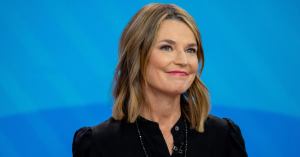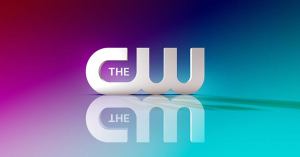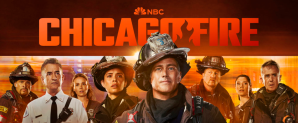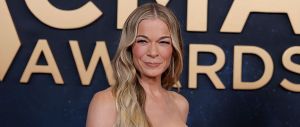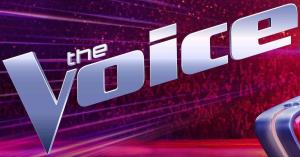Everett Osborne is making his major feature film debut as NBA Legend, Nathaniel “Sweetwater” Clifton in the upcoming film Sweetwater, releasing in theaters nationwide on April 14. The sports biopic tells the incredible true story of Nat “Sweetwater” Clifton and his journey to becoming the first-ever African American to sign an NBA contract after playing for the Harlem Globetrotters. He changed how the game of basketball is played and provided the foundation of what we see today in the league. Sweetwater’s story marks a pivotal turn in basketball history, helping pave the way for many who came after him. Osborne does a dual job in the film as an actor and professional ball player.
He recently showed off his skills in the 2023 NBA Celebrity All-Star Game, where he set the scoring record of 23 points, ironically on Michael Jordan’s birthday. After graduating from college with a degree in Psychology, he landed the starring role as “Dante Grand” in Nike’s Want It All short film, directed by Straight Outta Compton’s F. Gary Gray. The award-winning ad also featured NBA greats LeBron James and Kevin Durant and became a global phenomenon with over 50 million views upon its release. Shortly after, Osborne shifted his career focus back to professional sports and left the U.S. to begin his professional basketball career in Australia.
Videos by PopCulture.com
But acting never left his heart. He had a guest spot on Tyler Perry’s Sistas and Chicago Fire. Now, he paying homage to an unsung hero. Ahead of the film’s release, PopCulture.com spoke with Osborne about why Sweetwater’s story is necessary to tell. He also dished on training for the film, the NBA’s involvement, his equal love for basketball and acting, and much more. Check out the full video interview on our YouTube channel.
PC: First and foremost, congratulations on the success of Sweetwater and its release. Not a lot of films nowadays are getting theatrical releases, so you’re definitely one of the people that are in this special bunch of nationwide releases. So how does it feel to be a part of that league?
EO: Well, first off, Brenda, thank you for having me. It’s a pleasure meeting you and being on here. And it’s crazy, just hearing you say that it’s wild, right? It’s not too many of us. So I mean, my mind initially goes to responsibility, and representation. And this story is a story that hasn’t been told. It’s a Black story, but it’s also a human story, it’s a world story. It’s about the first African American who signed an NBA contract. And the fact that I get to usher in this human being that we’ve heard nothing about, and the fact that it’s in cinema, it’s real cinema, and the fact that we get to go to the theater and experience it amongst each other – whether we’re the same skin tone, same gender, same race or not – it’s such an honor. I thank God, and it’s such a beautiful moment, and I think it deserves that. I think humans deserve to experience this human story with each other, and allow that journey to take us on a fun ride.
PC: You spoke about the fact that it is a story that hasn’t been told before. Not too many people are familiar with the story of Nathaniel “Sweetwater Clifton.” I know that you have an athletic background as far as playing basketball, but how familiar were you with Sweetwater’s story before hearing of the part, if at all?
EO: If at all is that point right there. I wasn’t familiar at all. And it’s crazy, right? Like you said, I have a basketball background. I played professionally for a few years in Australia. I’ve been playing ball since a kid, and I didn’t know who this man was. I heard of Jackie Robinson [in the MLB], but I did not know who the first to cross the color barrier for the NBA was.
So when I got the script, I was blown away. Why did I even think to think about this dude? I didn’t even think to think about him. So for me, it was a complete honor just to learn about him, learn about the history of the game, and shout out to the director Martin Guigui. He’s a basketball fanatic, he loves the game, he knows the game. He’s been working on this script for 28 years. So he wrote and directed it. So this has 28 years of research, and it’s been cooking in the pot.
PC: It is very interesting that the story hasn’t been told, and that it’s not really a part of our history in the way that I guess it probably should be. I just watched Bill Russell’s Netflix documentary not too long ago, and obviously, we know about him going from one league over into the NBA, and becoming this huge staple with the Celtics. And I’m really big on documentaries and history and things like that. So for me not to have heard of Sweetwater was mind-boggling. So I was very excited to just even delve into the research portion of it. So after you even heard about the script and the story, what was your research like?
EO: Man, as you were talking, I thought about something real quick. I was in LA, and I’m from LA, so I was driving down Crenshaw, and I went to a Soul Food spot on the corner. I looked on the door and I saw Jackie Robinson, I saw Martin Luther King, I saw Malcolm X. I’m like, “Wow, there’s no basketball representative. We don’t even know who this guy is.” So I think it’s going to be great for our people, for sure. And just the research process on my end, as an actor, once I get the suggested material, which is the script, I got to go deeper. This movie is 28 years of research, so I was supported really well as far as his script goes about who this guy was. But I had to dig in past the words, and I went straight to Google, researched whatever I could with books and whatever I could find.
And I found beautiful videos of him actually talking as an older man driving a taxi cap, and kind of just recollecting about his life and his past history, and what he kind of wishes would’ve happened. But not in a down way. Sweetwater was a cool, smooth, graceful guy who didn’t care about the credit at all. He was always about the we. We’re talking about a man that served in the army, he fought in the World War II. So he had a heart for people and justice for everybody.
So I think just researching what he was about and what he went through during that time really informed me a lot, because you got to look past what the person is doing. Each and every one of us isn’t what we do. He’s not a basketball player, he is a human being with a melting pot of experiences. So that was pretty much my research, just seeing what time he was born in, during the Great Depression era, what did he go through, what did he live through, and how did that influence him. And just building it out from there.
PC: Because this is a story that everyone is finally going to become abreast about, and I read that he passed away in 1990, but he’s getting his just due now, and his legacy lives on. So who was involved? You mentioned the director and that the film was 28 years in the making, but outside of him and his obsession with this amazing story that had to be told, are there any members from Sweetwater’s family who are here, who are younger, who got that oral history of their family member who were actively involved in bringing the story to life as well?
EO: Absolutely. This film was done so well and so true. It hit all the real bases when it comes to dealing with human beings. He made, the director, when I say he, Martin Guigui, he’s kept a relationship with Jataun Robinson, Sweetwater’s daughter, from the beginning of time. Even when Sweetwater got inducted until the Hall of Fame in 2014, it took him that long. He was involved in that. So he’s always had a fingerprint on the truth and the authenticity of this story by staying connected to the family, and staying connected to the NBA, which is beautiful. So we have the NBA in on this, and they checked all the facts. They had to send over 600 pages to make sure it was facts. So we got the NBA involved, and Sweetwater’s daughter was involved.
I even remember she showed up to set, I think week one or week two of filming, and I just had a beautiful moment with her exchanging of words, and she was like, “Wow, that scene we just did, my dad would’ve said that. You have my dad’s spirit.” So just to hear that she was on board and she connected to what we were doing was so powerful.
And a little spoiler alert: Sweetwater’s grandson is actually tied into the film. He’s acting in the film. He plays a role in the film. So we actually have the bloodline sewn into this film that’s going to last forever too. So it’s beautifully done, well respected as far as not skipping any steps as far as honoring the family.
PC: Without giving too much away, this is a time period piece, and he was playing in the NBA in the 1940s in New York. What type of obstacles during that time are you able to tease that he was really up against at that time? There was obviously racism because of where the NBA was at that point. And I would assume financial barriers in terms of him being paid what he was owed as an NBA player. But other than that, what type of issues did he face throughout his career that’s really highlighted in the film?
EO: I think what separates Sweetwater is, of course, it was that racial tension that he had to overcome and endure and push through. But I think that another factor is he really changed the game of basketball. Basketball wasn’t as innovative and as creative as the game that we love today, a guy is just creating things. You never know what to expect when you watch a game. It’s like watching artists on a canvas. And Sweetwater brought that. He broke the mold and brought that creativity, brought that freedom to the game. And all freedom comes with a cost. So Sweetwater had to push against those boundaries and those borders of a whole institution that was so used to playing a certain type of style, a boxing style of basketball, which at the end of the day, it’s safe, but it limits humanity.
And when you fight for change – or not even fighting for change – but when you’re pushing past boundaries, that’s pretty disruptive. I mean, even when a seed is planted in the ground for growth, it breaks through soil. So I think that’s one of the things, without giving too much away, that Sweetwater had to break through a whole industry and a game. And literally by his passion, his pursuit from the inside, it really changed the way the game was played. And that wasn’t an easy battle of trying to deal with that as one human being, that was really thinking outside the box and being limitless.
PC: So you spoke a lot about him changing the game, and we see people who are basketball fans, there have definitely been different styles that have been adopted from the inception of the NBA until now. When we watch the game of basketball, we really never know what to expect, it’s like a whole game of gymnastics sometimes. So how would you describe Sweetwater style, especially with you having a basketball background as well?
EO: The ultimate innovator, right? He was creative. He had no point of reference as far as what that game was providing during that league, during that time. I mean, granted, he did have the Harlem Globetrotters where he came from. Even in high school, I mean, this man was dropping 60 points a game. But I would say Sweetwater brought a style of flair, the finger roll, the way he played the game, the graceful creativity that we’ve never seen before, that fans literally will pack out arenas for it. He brought that style to the game. And it’s so beautiful, us talking about his life. How can you go through so much turmoil, racial tension? How could you feel betrayal from your own country in a way? I mean, he fought in the war and came back and wasn’t supported. So how do you go through that and not be calloused, but still move with so much grace and so much love about the other people and not worry about yourself?
So I think Sweetwater brought that style, that flair, that grace to the game, on and off the court.
PC: Now, we spoke about some of the obstacles that he came up against, obviously in his career, and knowing the stark differences with the way that African American NBA players are treated versus the way that they were treated back then…as far as Sweetwater’s sacrifices, how impactful were they in order for players of color to be where they are now?
EO: Like I said, freedom ain’t free. So his sacrifices are pivotal, right? I mean, even Michael Jordan said, “There’s no Michael Jordan without Sweetwater.” There’s wasn’t billion-dollar contracts, there wasn’t all of that going on. Not billion-dollar contracts, but million-dollar contracts, and the league wasn’t a billion-dollar industry during that time. So literally, the league had to build on top of these players, these trailblazers that came before all these graces that we’re talking about to sustain the league.
The Harlem Globe charters would play first, because they packed out all the fans. Then the league would come in afterward and try to play and keep those fans in. So literally, these players built the league and made it fun. So I mean, it is really a testament to who Sweetwater was, who he is. And I think the players today would appreciate it, understanding the history of the game, and people that are just not fans of basketball, just fans of sports in general, or just humans would appreciate how far the game has come because it started with a guy like Sweetwater.
PC: You played professionally, but you’re acting full-time now. So do you actively still play basketball as a part of your physical health, or workout health, or did you have to go into overdrive and physically train for this role?
EO: Great question, great question. I’ve always been around the game, because I love it. So it’s just something that’s kind of a lifestyle, even if it’s just like, “Oh, let’s play pick up a little bit, just run around, stay in shape a little bit.” So I was already around the game, but I wasn’t actively pursuing it. I’ve been acting full-time. So when that audition came, it was almost like my body was prepared though. I think from the 23 years, 24 years of non-stop training for basketball, pursuing one dream, one goal, I think it was like compound interest. I was ready. So literally once I got the audition, I wasn’t playing every day, but I put on my Chuck Taylors, I had on my short shorts, I called my uncle, we went to the gym, he recorded me, and I made 10 shots in a row doing all dunks, all dribbles. And it was like I was training all day, but even though I wasn’t. So I think my body was just prepared for the moment.
And everything you’re going to see in the film is real – any dunks, any shots – there are no body doubles, there’s no fake basketball playing. It’s actually me portraying the role of Sweetwater doing all these moves. And I think that’s a testament to the authenticity that the filmmakers wanted to keep with this film, and I think we executed that.
PC: I remember learning that Gina Prince-Bythewood wanted an actual athlete to play the role of Monica Wright in Love & Basketball, and obviously, Sanaa Lathan won the role. But she said that that was the hardest role in her life. I always am interested to why certain casting decisions are made based on the talent of an actor versus talent of a professional athlete or singer in these biopics. And what goes into the mind frame of, ‘OK, this person has to be a trained athlete versus an actor.’ So what did the director tell you about his decision for this role?
EO: It was like a match. It was like God’s time stars aligned. And literally, by me submitting myself as the actor doing the one scene I got and then submitting my tape as the athlete, I have this two-headed monster, to me in a way where I have supreme athleticism, and my ability to act is there. I am an actor to my core. So I think from what the director told me, they were just like, “Wow, we couldn’t even ask for nothing like this.” Because like you said, you find an athlete, and you’re trying to make them an actor – but then you find an actor, and you’re trying to make them an athlete, and it’s kind of tough. But for me, I am an actor that happens to be an excellent basketball player.
So he just told me, “Hey, man, you are Sweetwater. And 99.9% of your instincts are real from everything I’ve seen. And if there’s any adjustments, we’ll talk about it.” But he gave me the liberty, and I was prepared. I came in there, and I felt supported by him, I felt supported by a lot of the legends that came before me. We got Carrie Edwards, Richard Dreyfus, Kevin Pally, Jeremy Piven, Eric Roberts showed up, and Jim Caviezel. So we have a lot of legends and great people that just supported the whole environment to where we were able to just be honest, flow, and kind of go with our instincts. And a lot of them were on point.
What makes it interesting is that, even though I played basketball, I didn’t play in 1950. So even with that, as the basketball player in me, right? “Oh, there’s a basketball role. Easy. I got it.” No, no, no, no. I knew prior to even accepting and leaning into this role, into this story, that I had to put away all the Everett Osborne tendencies. And I had to absorb a new world. Even if it’s something I cared so much about, I had to let my understanding of that go, to step into basketball during this time, you know what I’m saying? To serve the story the correct way. And I knew if I was going to take this on, that was the decision I had to make from the beginning.
PC: So what are your ultimate hopes for the audience as far as takeaways are concerned?
EO: Just walking there with an open heart. It’s a human story that’s going to hit every diaspora. This is a world story. And so it’s hard for me to pinpoint what I want the audience to take, because if we talking to a child, it’s going to be different from talking to an elder, or an adult, or a millennial. So it’s going to be different. But just walk in there with an open heart and be ready for this rollercoaster ride of magic, because there are a lot of ups and downs on it. And I think they’re going to be inspired, I think there’s going to be thought-provoking moments. And ultimately, I would like for them to understand that the world inside is greater than what’s outside. And nothing can stop the power of the human spirit. Nothing can stop belief, especially when we connect together, we can push past any boundaries that life tries to present.
PC: As someone who’s played professional basketball, and as someone who’s had to step into this role of an NBA player and then from a different timeframe at that, what would you say are the key differences? Because you played in Australia, so what would you say are the key differences between international leagues and then the NBA?
EO: Well, first off, you’re not at home, right? You’re not in your country. So lifestyle is different. Sometimes it’s a language barrier. The food barrier sometimes, you’re not used to certain things. But the style of play, each country is different – whether in China, Europe, Australia. Australia, they play hard. They play hard basketball. I mean, a lot of guys like LaMelo Ball who was the top draft pick in NBA Draft came from Australia’s NBL league. So that’s a respected league. So they play hard. But one thing is you’re not going to find players dropping 70 points, 81 points, 60 points, or 50 points over there. They’re really methodical as far as making sure everybody gets the ball shared, and plays the right way.
But over here, in the NBA, you mess around, if a player is hot, he’ll go for 71, he’ll go for 81, he’ll go for 60. And they’ll keep feeding that person the ball. They’ll let your creativity expand to the highest degree. Overseas, in different leagues, it’s not so much like that. Maybe in China, you’ll see guys scoring a lot of points, but that’s pretty much the difference, the systems of how to play. And that’s what this whole thing’s about, challenging systems. Systems aren’t always wrong, but sometimes we got to be able to push past systems to really reach our full limit, what you see guys are doing in the NBA today.
PC: Can you explain your transition? It’s not that athletes don’t become actors, that’s really a big thing at this point, that’s like what they do in the second half of their career after they retire, or they already start making that transition early on in their career nowadays. So I was very interested to see how your transition from professional sports to acting came about, and why you kind of went in between both.
EO: It was always like that, without me realizing it. As a child, I did theater, then I loved basketball. So I was studying scripts as a kid, but I made a decision to pursue basketball. But even in that decision, I went to college, played division one, and was the president of all student-athletes – so I had to do conferences, I had to do voiceovers, I had to do photo shoots, because I was the voice, I had to do commercials. So I was always literally in the entertainment world while I was playing ball. It was never like, “Okay, I’m going to do this because I can’t do this.” But there was a moment once I graduated college when I didn’t have any opportunities to go play pro yet. I was like, “Dang, what can I do?” And I was like, “Wow, I’ve always been on in front of the camera. Let me take all footage from college of me doing commercials, and let me bring that to Hollywood.” And that’s when I started auditioning and auditioned as a background for one basketball commercial.
And I ended up getting called back nine times, and got booked as the lead. They had to rewrite the whole thing, which made me the lead. That was F. Gary Gray’s production. LeBron James starred as well. It was Nike and a commercial with Kevin Duran and Paul George. In that moment right there, I talked to F. Gary Gray, the director, and he was like, “Yo, you really have something if you take this seriously.” But I was so locked in on basketball.
So when I went to Australia, I was still filming. I was still quietly doing commercials in Australia. I was still doing photo shoots, I was still reading scripts, I was still studying. So it was just something that was just growing inside of me, not out of desperation, but out of pure love. I always had a love for humanity. I majored in psychology, I loved human behavior. I’ve always been interested in the intricacies of that. So as I look at it, it wasn’t my decision, it was kind of always there. And when COVID hit, and I couldn’t go back to Australia, I was like, “OK, what do we have? OK, I’ve been acting, let me really water this, and let’s see what happens.” And I gave my all to it, and it’s been pointed back to me.
PC: Because you have weaved in between sports and acting, is there one that you love more than the other?
EO: For me, I love them both. Because you can’t have one without the other. Literally, basketball has been my conservatory, I would say. Actors go to conservatories, so basketball has been my conservatory, where I’ve learned the ethics of studying, passion, triumph, defeat, and pursuing something even though you don’t see any options of persistence, which is needed for me as an actor. So I can’t choose one without the other, because my life experiences have merged both of them together. But I can thank each and every chapter. It’s like chapter one, chapter two. So I’m just grateful for the story that’s being created. I can’t choose one though at all.
PC: After this film, what’s next for you, and what other projects are you delving into?
EO: I got a lot more stories to tell, and I’m grateful for the opportunity of Sweetwater. Right now, I’m really focused on really making sure the world understands this story, because it’s been cooking for 28 years. Sweetwater would be 101 years old right now, and I don’t feel like this moment is about me. Yeah, I could hop to the next project, but I told them I want to be here and really press the foot on the gas with this. But of course, obviously, more films coming up, and I’m looking forward to sharing out with people and diving in and sharing new stories. But right now, I just wanted to really give this story due diligence.

